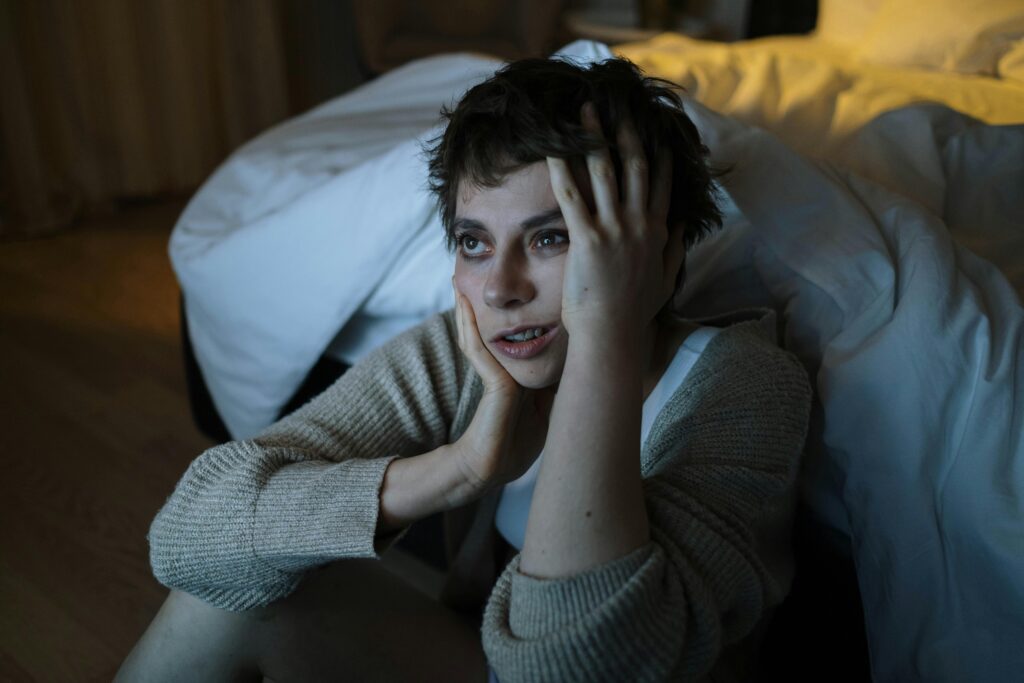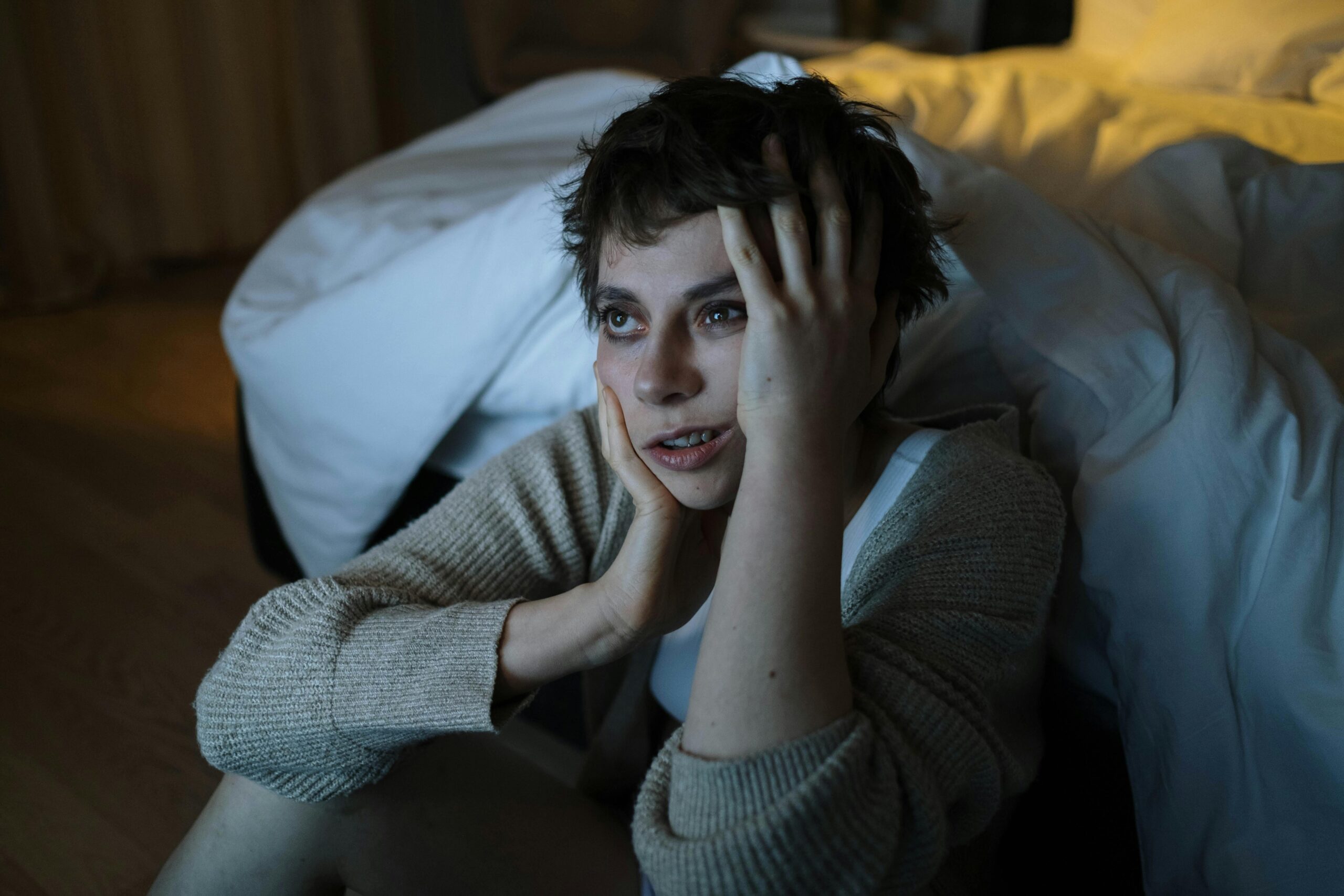Why your sleep isn’t just rest—it’s a life-altering foundation for mental clarity, energy, hormones, and health.
What If You’re Tired Because Something’s Wrong?
Feeling exhausted all the time? You’re not alone—and it’s not just because you’re “busy” or on your phone too much.
One in five adults unknowingly suffers from a serious sleep disorder, with sleep apnea being one of the most underdiagnosed. And it’s not just snoring. Sleep apnea and related disorders quietly wreak havoc on your brain, body, metabolism, mental health, and hormones—often years before anyone notices.

This isn’t an old person’s problem. Men and women in their 20s and 30s are increasingly at risk due to stress, weight gain, tech overuse, and environmental changes.
Want to change your life? Start by fixing your sleep.
What Is Sleep Apnea—And Why Should You Care?
Sleep apnea is a disorder where your breathing repeatedly stops and starts during sleep. This robs your brain and body of oxygen—sometimes hundreds of times per night.
🛑 Types of sleep apnea:
- Obstructive Sleep Apnea (OSA): Most common; caused by throat muscles collapsing and blocking the airway.
- Central Sleep Apnea: Brain fails to send proper signals to the muscles that control breathing.
- Complex/Mixed Sleep Apnea: A combo of both.
The Silent Symptoms: How It Creeps Into Your Life
You don’t have to be gasping for air to have sleep apnea. Most people have no idea they have it—until their lives start unraveling.
🚩 Signs to watch for:
- Always tired, even after 7–9 hours of sleep
- Brain fog, trouble focusing, memory lapses
- Morning headaches or dry mouth
- Mood swings, irritability, or depression
- Loud snoring or choking sounds at night (often noticed by a partner)
- Night sweats or frequent wake-ups
- Erectile dysfunction or low libido
- High blood pressure or unexplained weight gain
Why Young Adults Are the New Risk Group
Sleep apnea used to be seen as a problem for overweight, middle-aged men. But today, young, fit, and even slim people are being diagnosed. Here’s why:
1. Tech and Screen Time
Blue light disrupts melatonin, delaying sleep and changing circadian rhythms.
2. Mouth Breathing and Poor Oral Health
Modern diets and facial structure changes are making airways smaller.
3. Chronic Stress and Cortisol
Stress alters breathing patterns and disrupts deep sleep.
4. Weight Gain and Inflammation
Even slight increases in body fat around the neck can compress the airway during sleep.
5. Alcohol, Vaping, and Sleep Meds
All of these relax the throat muscles, increasing the chances of airway collapse.
Men vs. Women: Same Problem, Different Signals
Men tend to show classic symptoms—snoring, gasping, fatigue. Women? Not always.
Women’s signs can be more subtle:
- Insomnia
- Anxiety and depression
- Morning nausea
- Light, fragmented sleep
- Chronic fatigue mistaken for hormonal imbalance
Because of this, sleep apnea in women is often misdiagnosed as anxiety or stress.
What Happens If You Don’t Treat It?
Unchecked sleep apnea isn’t just uncomfortable. It’s dangerous.
📉 Long-term consequences:
- Cardiovascular disease
- Type 2 diabetes
- Stroke and heart attack risk
- Dementia and cognitive decline
- Hormonal imbalances (testosterone, estrogen, thyroid)
- Immune system dysfunction
- Depression and suicidal ideation
Sleep apnea doesn’t just steal your sleep—it steals your life quality and lifespan.
How Do You Know If You Have It?
✅ Step 1: Self-Check
- Do you snore loudly?
- Do you wake up tired, no matter how long you sleep?
- Do you fall asleep during the day, even when sitting still?
- Do you grind your teeth or wake with jaw tension?
- Have others said you gasp or choke in your sleep?
If you answered yes to two or more, get checked.
✅ Step 2: Sleep Study
- Home Sleep Test (HST): Small device worn at home for one night.
- Polysomnography (lab test): More detailed, includes brain waves, eye movement, oxygen levels, and more.
Treatment: You’ve Got Options
You don’t have to live in fear or frustration. Once diagnosed, sleep apnea is treatable and manageable.
😴 Common treatments:
- CPAP machine (Continuous Positive Airway Pressure): Delivers air pressure to keep airways open.
- Dental appliances: Mouthguards reposition the jaw to keep airways open.
- Weight loss and diet change
- Nasal breathing training or mouth taping
- Surgery (in severe cases)
Bonus: Many patients report massive improvements in energy, memory, sex drive, and mood within weeks of starting treatment.
Holistic Ways to Optimize Your Sleep—Even Without Apnea
Whether you have sleep apnea or not, sleep hygiene is a superpower. Here’s how to level up your rest:
🌙 1. Upgrade your sleep routine:
- Go to bed and wake up at the same time every day.
- Use blue-light blocking glasses after sunset.
- Keep your room dark, cold (60–68°F), and quiet.
🌿 2. Ditch the disruptors:
- Cut alcohol and caffeine 6–8 hours before bed.
- Avoid doom-scrolling or emotional content at night.
- Don’t eat big meals 2–3 hours before bed.
🧘 3. Add calming practices:
- Stretch or do yoga before sleep
- Try magnesium glycinate or chamomile tea
- Use breathing apps like Breathwrk or Calm
💨 4. Train your body to breathe right:
- Nasal breathing is better for oxygen flow.
- Mouth taping (under supervision) can retrain your pattern.
- Address allergies or nasal blockages.
Myths Busted: Let’s Clear It Up
| ❌ Myth | ✅ Reality |
| Only overweight men get sleep apnea. | Anyone can have it—even kids and athletes. |
| Snoring is harmless. | It could be the first sign of airway obstruction. |
| Women don’t get sleep apnea. | They do—and often go undiagnosed. |
| CPAP is uncomfortable. | New tech has made it quieter, smaller, and easier. |
| You can “catch up” on sleep later. | Chronic deprivation still harms your body long-term. |
Why This Matters for Young People
You might feel like you can push through your 20s and 30s on caffeine and 4 hours of sleep—but it’s a lie.
- Sleep influences your mood, mental health, sex life, creativity, and energy.
- Bad sleep makes everything harder: school, relationships, self-worth.
- Sleep disorders increase your risk of burnout, disease, and early aging.
Investing in your sleep now can change your whole life. More energy. More focus. More confidence. And more clarity about who you want to become.
💬 Interactive Q&A: Real Answers for Real People
❓ I’m always tired, but I don’t snore. Can I still have sleep apnea?
Yes. Not everyone with sleep apnea snores. Women and slim men especially may have “silent apnea” that manifests through fatigue, anxiety, or insomnia.
❓ I’m 28. Isn’t sleep apnea for older people?
Not anymore. Lifestyle factors—like stress, obesity, jaw development, screen time, and even vaping—are putting younger people at risk earlier than ever before.
❓ Will wearing a CPAP make me feel weird?
It might feel strange at first, but most people adjust quickly—especially once they feel the massive energy boost from better sleep.
❓ How do I bring this up to my doctor?
Be honest. Say, “I wake up tired all the time. I think I may have a sleep disorder. Can I get a referral for a sleep study?” It’s your right to ask.
❓ What if I live alone and don’t know if I snore?
You can record yourself sleeping using apps like SnoreLab or just a phone with a voice memo app overnight.
❓ Is this a forever thing if I have it?
Not necessarily. Many people can reverse mild to moderate apnea with weight loss, breathing therapy, dental devices, or other lifestyle changes.
❓ Where do I get tested?
Start with your primary care doctor, or see a sleep specialist or ENT. There are also at-home testing kits like Lofta, WatchPAT, and SleepTest.com.
❓ What’s the best way to start sleeping better right now?
- Go to bed at the same time every night
- Breathe through your nose
- Turn off screens 1 hour before bed
- Get sunlight first thing in the morning
- Track your sleep with apps like Oura, Whoop, or Sleep Cycle


Leave a Reply